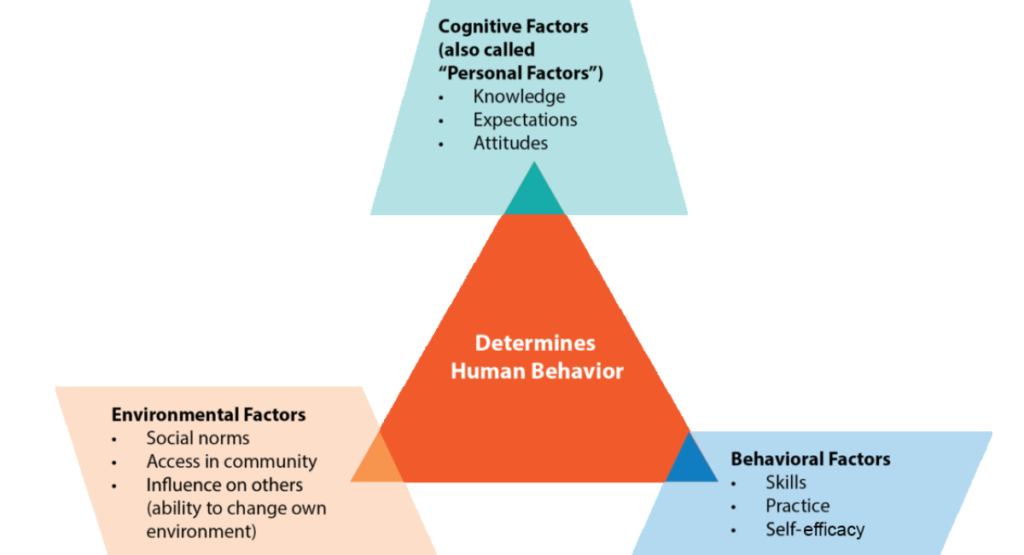Welcome to the mysterious realm of cognitive theory in psychology! Have you ever pondered how our minds function, how we absorb information, or why we think and behave as we do? If so, you’re in for an interesting ride. Cognitive theory provides useful insights into the workings of the human mind, giving light on anything from problem solving to decision-making. In this blog article, we’ll go over the fundamentals of cognitive theory in psychology in layman’s terms, giving you a strong foundation for this fascinating area.
Understanding Cognitive Theory
Cognitive theory in psychology is fundamentally concerned with understanding how humans receive, think about, and recall information. Unlike some other theories, which focus primarily on observable activities, cognitive theory investigates the inner workings of the mind, including processes such as attention, memory, and problem-solving. Psychologists study these mental processes in order to identify the fundamental factors that underlie human behaviour.
Key Concepts in Cognitive Theory
To understand the essence of cognitive theory, you must first get familiar with its basic principles. One such idea is information processing, which implies that the mind functions similarly to a computer, processing incoming data and creating replies. Another basic concept is schema theory, which claims that our minds organise information into mental frames or schemas that guide our perceptions and interpretations of the world around us.
The Role of Perception and Attention
Perception and attention are critical components of cognitive theory, influencing how we understand and respond to the environment. Perception is the act of organising and interpreting sensory data, which allows us to make sense of our environment. Meanwhile, attention selects which stimuli we focus on, filtering away extraneous information and directing our cognitive resources to pertinent activities or stimuli.
Memory and Learning
Memory is another critical component of cognitive theory, impacting everything from learning to decision-making. This theory holds that memory is an active process that encodes, stores, and retrieves information rather than a passive storage mechanism. Psychologists have discovered a variety of processes related to memory, such as the primacy and recency effects, that impact how humans recall information over time.
Problem-Solving and Decision-Making
One of the most useful uses of cognitive is its insights into problem solving and decision-making. Psychologists investigate how individuals approach issues, find answers, and make judgments, exposing cognitive processes like heuristic reasoning and decision-making biases. Understanding these processes can help people improve their problem-solving abilities and make better informed judgments in a variety of settings.
Speech and Thought
Language is a fundamental component of human intellect, allowing us to express complex thoughts and concepts. Cognitive theory investigates how language impacts mental processes, changing how we view the world and articulate our ideas. Research in this field has yielded remarkable insights on linguistic relativity, implying that language may alter our perceptions and cognitive processes.
Applications in Psychology and Beyond
Cognitive theory has several applications, including psychology, education, and artificial intelligence. Cognitive-behavioural therapy (CBT) is a popular technique in psychology that uses cognitive concepts to address mental health issues. Furthermore, cognitive science has influenced the creation of instructional practices that attempt to maximise learning and retention.
Challenges and Future Directions
While cognitive theory has made important advances in understanding the human mind, it still confronts problems and unsolved concerns. One topic of continuing investigation is the nature of consciousness and its relationship to cognitive processes. Furthermore, technological advancements such as neuroimaging techniques continue to reveal new insights into brain activity, paving the path for future discoveries in cognitive psychology.
Conclusion
Conclusively, psychology’s cognitive theory provides an intricate framework for comprehending the intricacies of human thought processes. A vital understanding of the inner workings of the mind is gained by psychologists via investigating ideas such as perception, memory, and problem solving. Cognitive offers a plethora of knowledge to investigate and utilize in many facets of life, regardless of your interest in the enigmas surrounding consciousness or in exploring doable tactics to enhance cognitive performance.
We are India’s first comprehensive continuum care provider. We provide multidisciplinary out of hospital care to acute and post-acute and chronically ill patients at our critical care facilities and your home.

